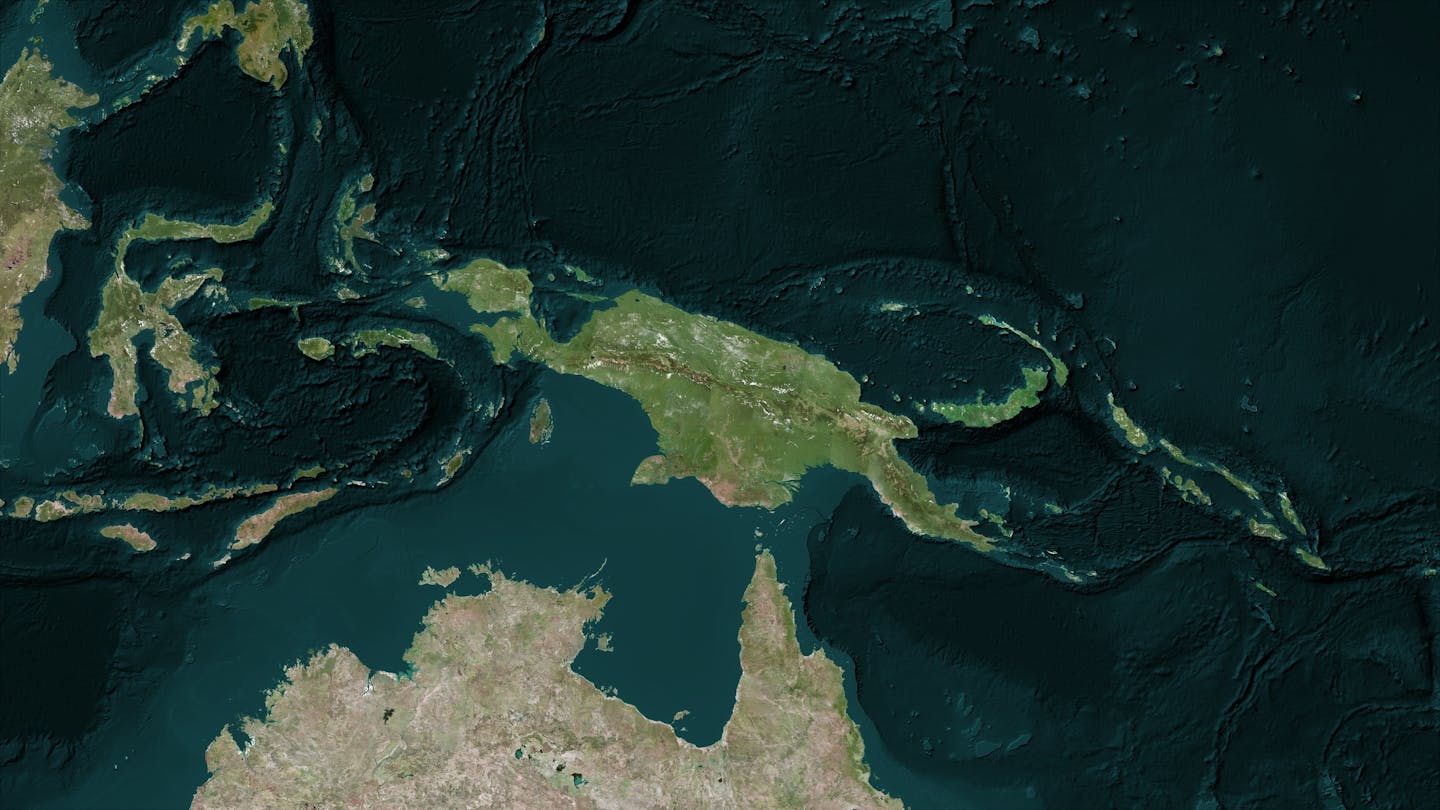UK banks, energy giants and arms exporters are at the heart of one of the world’s least-known human rights and environmental crises, our research has revealed.
West Papua – the Indonesian-administered western half of the island also known as New Guinea – hosts much of the world’s third-largest rainforest after the Amazon and Congo basins.
Very few people outside of this region know about the decades of disappearances, torture and mass evictions of people from their land or of the independence struggle led by indigenous people. Even fewer know that the UK government and British companies are remain deeply entangled in the industries driving this destruction.
Our new audit documents, for the first time, how the UK supplies arms and jungle warfare training to Indonesia, while major British corporations – from BP to Unilever – and financial institutions profit from mining, palm oil, gas or logging in the territory, in spite of strong opposition from many people who live there. (BP did not respond to a request for comment; Unilever did not respond on record).

These investments continue a legacy that began with Britain’s brief colonial presence in the 18th century and today links UK companies to an area that has seen mass deforestation, widespread displacement and allegations of torture and extrajudicial killing.
The environmental cost
West Papua has vast deposits of gold, copper and other metals, and major reserves of liquid petroleum gas. The region is home to the Grasberg mine, the world’s largest gold mine and second-largest copper mine.
A 2022 report by local activists estimated that, each day, around 300,000 tonnes of toxic mining waste are dumped into the Ajkwa river system. Fish stocks have been devastated and contaminated mining waste has piled up in and around the river, making it no longer navigable using traditional boats.
Our audit also documents how gold extracted from Grasberg is sold through the London Bullion Market Association and how the London Metal Exchange brands and sells copper from the Grasberg mine. (The LBMA has previously pointed to its responsible sourcing standards, while the LME has previously said it “takes its regulatory obligations seriously, and has appropriate measures in place to comply with such obligations, including in respect of [potentially criminal waste disposal]”).
Palm oil is another key driver of deforestation, and West Papua is the site of a rapid expansion of industrial agriculture which includes the world’s largest deforestation project. Our audit identifies 14 major British investors in West Papuan palm oil plantations, including HSBC. (HSBC did not respond to a request for comment). British firm Unilever sources palm oil from two mills in the region. (Unilever did not respond on the record).
British energy giant BP operates the Tangguh liquefied natural gas facility in West Papua. The project sits in the middle of one of the world’s largest contiguous mangrove forests and occupies 3,200 hectares of land, most of which is designated a “green zone” with extra environmental protections. Our audit estimates the project will ultimately release 1.5 billion tonnes of carbon by the time it is all processed and burned – equivalent to the EU’s entire emissions reductions between 2015 and 2030.
Since production began, BP has faced criticism over alleged ties with Indonesian security, particularly in the forced relocation of ten villages which severed local people from their ancestral fishing grounds (BP did not respond to a request for comment on each of these matters).
A legacy of colonialism – and the cold war
Britain’s role in West Papua began in 1793, when a British naval expedition briefly claimed the territory as “New Albion”. Within a few years the British were gone, and New Guinea soon became a Dutch colony.
But UK interest resurfaced during the cold war, when the west wanted to ensure that West Papua and its huge mineral resources were kept within the US sphere of influence. Through a UN-backed vote called the “Act of Free Choice” – widely criticised as a sham referendum and commonly referred to as the “Act of No Choice” – West Papua was incorporated into Indonesia rather than gaining independence.
This paved the way for the current model of industrial development, in which foreign-backed projects extract enormous wealth while local people miss out or are displaced.
In 2022, the UN’s refugee agency estimated that between 60,000 and 100,000 Papuans had been displaced in the previous four years. Today, the number may be even higher. Human rights defenders we have worked with in the region estimate there are more than 100,000 displaced.
This mass displacement is a direct consequence of large-scale industrial projects led or underpinned by foreign investors. Allegations of systemic torture, state killings and forced evictions continue, while UK companies and investors profit from the industries driving the crisis.
Until the people of West Papua – rather than foreign investors – are given control over their own resources, there is little prospect of an end to repression, mass displacement and poverty.
This article is republished from The Conversation, a nonprofit, independent news organization bringing you facts and trustworthy analysis to help you make sense of our complex world. It was written by: Samira Homerang Saunders, Queen Mary University of London and David Whyte, Queen Mary University of London
Read more:
- Riots in West Papua: why Indonesia needs to answer for its broken promises
- The world’s business and finance sectors can do much more to reverse deforestation – here’s the data to prove it
- How the world failed West Papua in its campaign for independence
The authors do not work for, consult, own shares in or receive funding from any company or organisation that would benefit from this article, and have disclosed no relevant affiliations beyond their academic appointment.


 The Conversation
The Conversation
 NBC News
NBC News ABC News
ABC News CBS News
CBS News America News
America News AlterNet
AlterNet Bloomberg Law
Bloomberg Law CNN
CNN Iron Mountain Daily Life
Iron Mountain Daily Life Glam
Glam